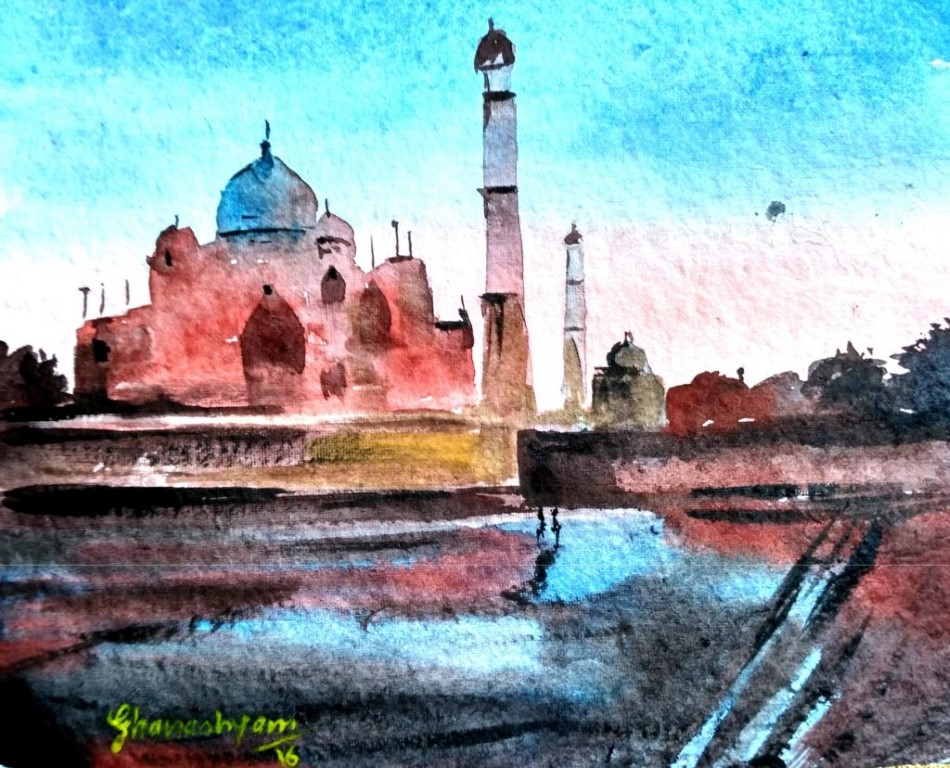– Anastasios
Objection 1: We have a gap between the childhood of Jesus and his public ministry. This gap is of around 18 years, not a little time. Some scholars believe he traveled to India to learn from wise men there. Can be this a reliable hypothesis?
Objection 2: Is it certainly strange that for a man as important as Jesus to have so big a gap. How can it be explained?
On the contrary, in John 16:15 it is said: “Everything that the Father has is mine; for this reason I told you that he will take from what is mine and declare it to you.”
I answer that, especially in recent years, it is not uncommon to make hypothesis about travels of Jesus in every possible place, not only India. Some also pretended he was in America, Nepal, Great Britain…Now, this difficulty is understandable because to be blank on so many years of Jesus puzzles us. There are many reasons for this and we don’t want to play down the difficulties that this silence plants in the heart also of many believers. But, as we say, the Gospels are not merely a sort of chronology, but they presented what is necessary for us to know to be saved in the name of God through His Son, Jesus Christ. Certainly everyone is entitled to make hypothesis, some scholars said that he was just being a carpenter working with His earthly father, Joseph. It seems a plausible hypothesis, especially if we think that in some passages of the Gospels He is related with the job of his father: “Isn’t he the son of the carpenter?” We don’t know about these years, and probably we are not supposed to know, but we can say this on a faith perspective. It is understandable that scholars are free to pursue their theories but it is their responsibility to prove them.
Reply to Objection 1: Paul Davids made a movie about the “Indian years” of Jesus. He wrote in the Huffington Post: “Easter approaches, and readers of the Huffington Post should know about the accumulation of evidence that Jesus spent part of his life in India — which parts, and how long, or even whether this happened, are much-debated by many scholars and religious leaders. However, after four years of work on the film Jesus in India (Sundance Channel / US – Showtime / Australia) which took me to three continents and to experts from all the major religions, my position is that although a final verdict is not yet in for Jesus in India as a concept and theory and new direction in religious thought, where there is smoke there is often fire — and I’ve been wading through the smoke for years. Or, as the New York Times said of my film, I’ve been ‘sifting through legends, myths and historical evidence in an attempt to unravel the mysteries of the life of Jesus of Nazareth from ages 12 to 30’ and Jesus’ possible travels in India.” One can see from this article that even he, a strong supporter of this idea, when putting things in writing resorts to prudence, saying clearly that there is no verdict in this direction and admitting that is a much debated issues. It seems an attempt, coming from the cultural environment of the ’60s, to make of Jesus a product of certain kinds of spiritualities coming from India (as Buddhism) that even if they have some valuable elements are not compatible with what Christianity is. Jesus says clearly that everything He has come from the Father, and for us this is enough.
Reply to Objection 2: As Mgsr Charles Pope explained in an article in Our Sunday Visitor, there may be several reasons for this silence. The Gospels are not a chronological account and in John 20:30-31 is said: “Now Jesus did many other signs in the presence of (his) disciples that are not written in this book. But these are written that you may (come to) believe that Jesus is the Messiah, the Son of God, and that through this belief you may have life in his name.” So the content of the Gospels is a selection, but there we have everything we need to know in order to be saved. Mgsr Pope has also another hypothesis: “Another reason the Gospels do not seek to cover every aspect of Jesus’ life may be more practical. Modern methods of setting forth history comprehensively presuppose the possibility of lengthy books that can be cheaply reproduced. But in the centuries prior to the invention of the printing press, books were copied out by hand. Further, papers and parchments were expensive. Brevity, therefore, was far more necessary. And since books and scrolls were expensive and hard to come by, most early preachers had to rely more on memory than today. Therefore, short, memorable stories focused on the essentials of Christ’s life and message were of greater use.” This is certainly a very sound argument.


 Follow
Follow


